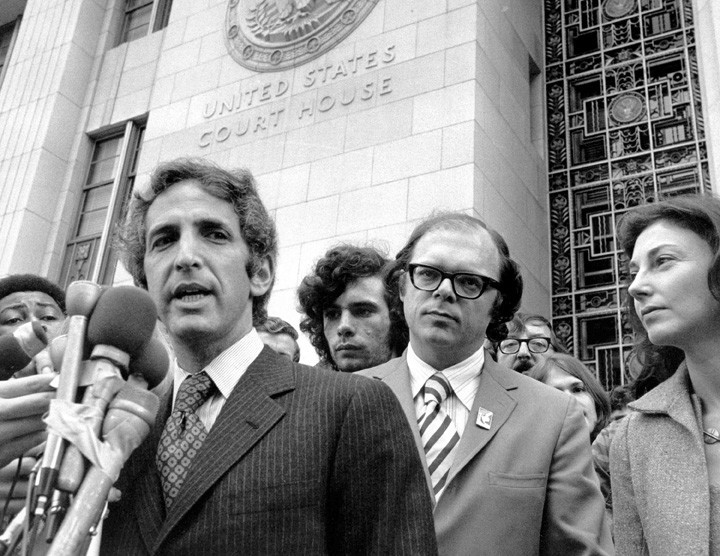Public Enemy Number One
Portions of the Pentagon Papers were first published in a New York Times exposé June 13, 1971. The series of monumentally important articles would lead to an increasing freedom of the press in the United States, a shattering of trust in public officials, the eventual end of the Vietnam War and the end of Richard Nixon’s presidency.
The Most Dangerous Man in America, a new documentary by Judith Ehrlich and Rick Goldsmith, tracks Daniel Ellsberg, the state official behind the leak of those papers. As one of the original propagators of the war, Ellsberg worked fervently on the report on United States-Vietnam relations, which became an impetus for the United States declaration of war against Vietnam. But he became disillusioned with the effort after visiting Vietnam and felt increasingly personally culpable for America’s actions.
In order to stop what he saw as a gravely unjust war, Ellsberg took on the task of making copies of all 7,000 pages of the report and delivered them into the hands of 17 major American newspapers.
Ellsberg, who acts as the narrator of the film, is portrayed as a somewhat reluctant yet fiercely idealistic crusader against what he saw as a war being waged under false pretences and sold to the American people by a government uninterested in dealing honestly with its people.
The film makes excellent use of talking head interviews, archival footage, re-enactments and even the occasional animated sequence to craft a story of corruption and eventual redemption.
It is particularly chilling to hear Nixon’s reactions to what Ellsberg was doing. The use of recorded audio allows us to hear the vitriol in his voice and at the same time implicate him in an irrefutable way.
The film is about a lot more than politics; Ehrlich and Goldsmith have created a stirringly contemplative piece on the nature of principles, conscience, justice and corruption in any era.
An obvious parallel is being drawn between the America of 1971 and today. Although there are no direct mentions made of America’s current international debacle, the warnings and challenges resonate throughout.
This is most clear in the final words of the film delivered by Ellsberg to a rally sometime in the ‘70s: “It is the courage, at last, to face honestly the truth and the reality of what we are doing in the world and act responsibly to change it.”
Published in Volume 64, Number 20 of The Uniter (February 25, 2010)








